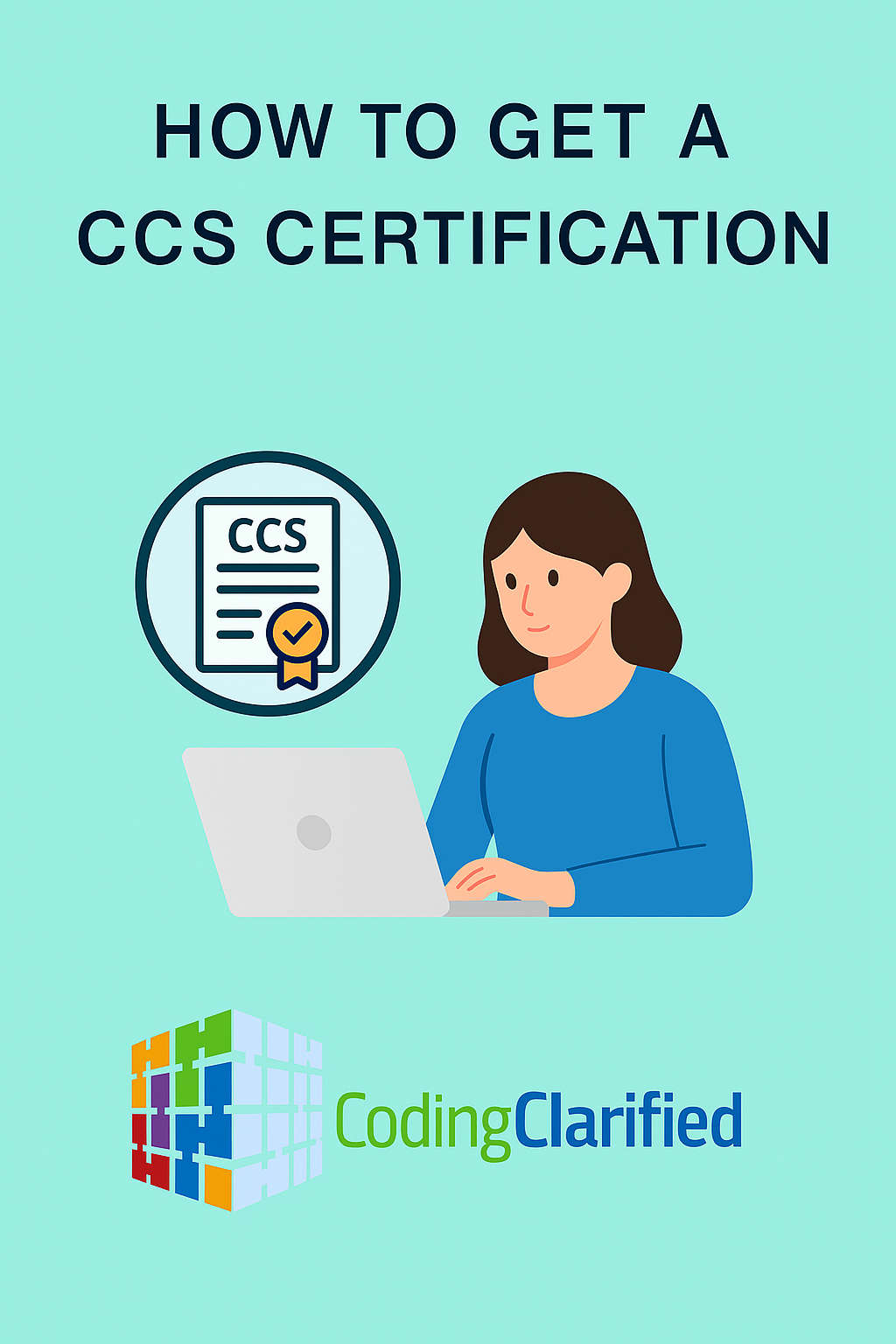How To Get a CCS Certification: Guidelines and Tips
The Certified Coding Specialist (CCS) credential, offered by the American Health Information Management Association (AHIMA), is a highly respected certification that demonstrates mastery in medical coding across inpatient and outpatient settings. Earning your CCS can open doors to more advanced roles and higher earning potential in the medical coding field. Let Coding Clarified show you how to get a CCS Certification.
Here’s a comprehensive guide on how to successfully obtain your CCS certification — including eligibility requirements, exam structure, study resources, and expert tips.
What is the CCS Certification?
The CCS (Certified Coding Specialist) certification validates your expertise in applying ICD-10-CM, ICD-10-PCS, CPT, and HCPCS Level II coding systems. Professionals who hold the CCS credential are proficient in classifying medical data from patient records, generally in a hospital or facility setting.
Who Should Pursue the CCS?
This certification is ideal for:
-
Experienced coders working in hospitals, outpatient centers, or coding audit roles
-
RHITs or RHIA-certified professionals looking to specialize in coding
-
CPCs or COCs who want to expand their credentials into facility coding
Eligibility Requirements
To sit for the CCS exam, you must meet at least one of the following criteria:
-
Completion of a coding training program that includes anatomy, physiology, medical terminology, pharmacology, and coding systems
-
Two years of coding experience
-
Other AHIMA credentials (e.g., RHIA, RHIT)
-
A combination of education and experience deemed acceptable by AHIMA
What’s on the CCS Exam?
The CCS exam consists of two main sections:
Multiple-Choice Questions
Covers:
-
Coding knowledge
-
Regulatory and compliance
-
Revenue cycle and data quality
Medical Scenarios (Coding Cases)
-
You’ll code actual inpatient and outpatient case scenarios using ICD-10-CM, ICD-10-PCS, and CPT/HCPCS.
Format:
-
~115–140 questions
-
Time: 4 hours
-
Computer-based testing at Pearson VUE centers
How to Prepare
Recommended Study Materials:
-
AHIMA CCS Exam Prep Book
-
Coding workbooks with real case studies
-
AHA Coding Clinic and CPT Assistant
-
Official coding guidelines (ICD-10, CPT)
Study Tips:
-
Review guidelines thoroughly — many questions test guideline knowledge.
-
Practice coding with timed case studies.
-
Use practice exams to identify weak areas.
-
Study inpatient and outpatient coding separately.
-
Learn how to code PCS procedures efficiently.
Exam Registration & Cost
-
Register via AHIMA’s website: www.ahima.org
-
Cost: Approximately $399 for non-members, $299 for AHIMA members
-
Administered year-round at Pearson VUE testing centers
Tips for Success
Focus on guidelines — they’re your best tool on the exam.
Don’t memorize codes — practice application.
Time yourself during practice to avoid running out during the real exam.
Brush up on modifiers and compliance topics.
Be ready for inpatient PCS procedures, especially unfamiliar surgical cases.
The CCS credential is a powerful step in advancing your medical coding career. With the right preparation, study tools, and a strong understanding of coding guidelines, you’ll be well-equipped to earn your CCS and thrive in a facility-based coding environment.
Comparing AHIMA vs AAPC Certifications for Medical Coders https://codingclarified.com/comparing-aapc-and-ahima-certifications-for-medical-coders/
Medical Coding Inpatient https://codingclarified.com/medical-coding-inpatient/

